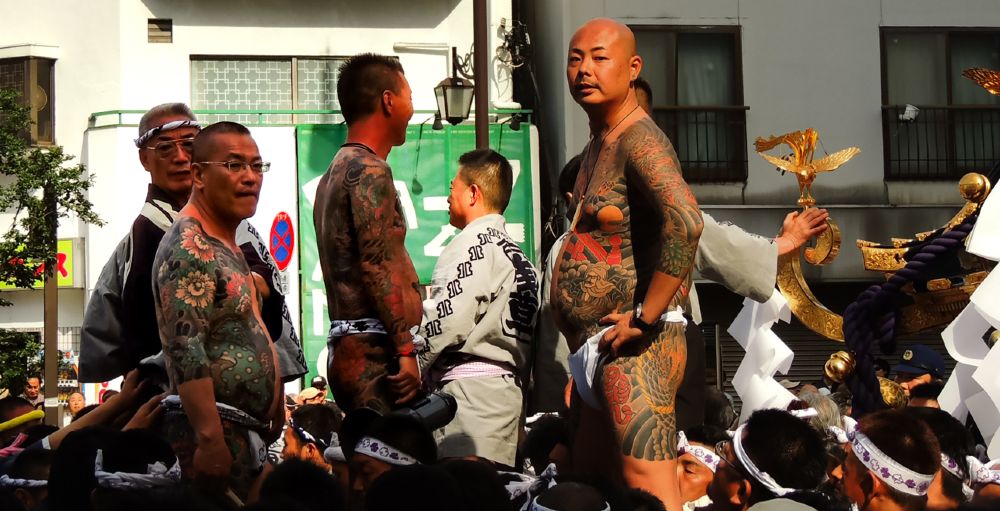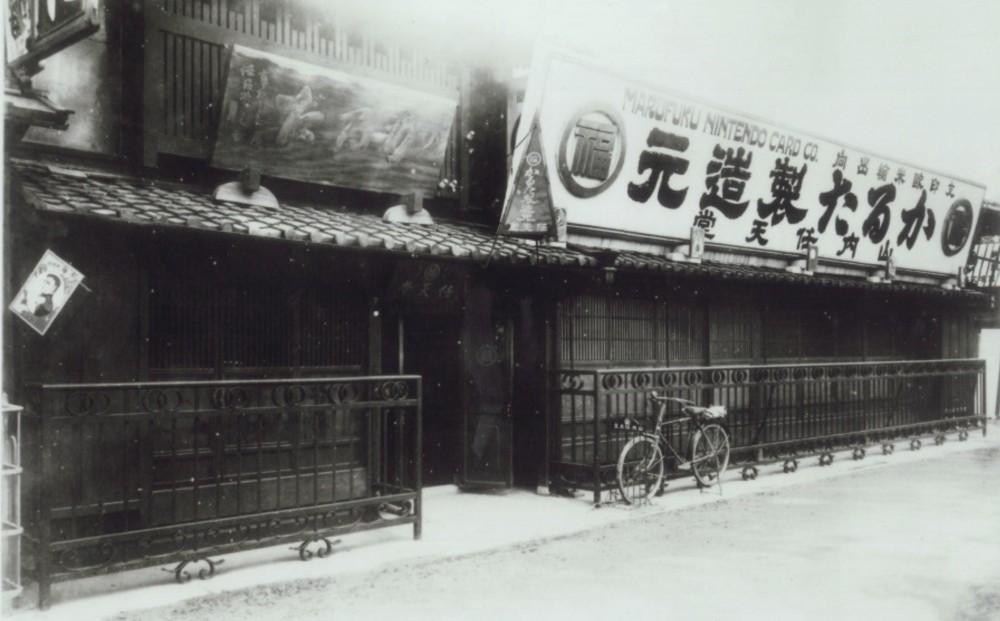The History of Gambling in Japanese Culture and Law
May 2021
To an outsider, Japanese culture can sometimes appear to be very different from the rest of the world. It is said that harmony, self-development, and order are three values that are held in high regard in Japanese society. Respect for elders, perseverance, working together, and discipline are also considered to be very important.
When it comes to Japan's history with gambling it follows a very similar path to many other nations such as India, the US, and China. Gambling goes way back in Japan to the Heian period and it is believed that one of the earliest games played was similar to backgammon.

Gambling is often associated with the Yakuza, recognizable by their extensive tattoos.
Like other countries, gambling spread far and wide and was embraced by the nation. It wasn't until centuries later that gambling laws were introduced and samurai and regular people were forbidden from taking part in wagers. Being caught gambling in the 13th century could mean execution.
In the early 1700s, gambling on certain activities was legalized, but 200 years later the Penal Code of 1907 was established and all forms of gambling were banned.
Gambling in Japan today
For an outsider coming from a country such as Britain, it would seem strange to see the restrictions on gambling. In the UK if someone wants to gamble they can visit a casino, buy the National Lottery, visit a bookmaker, or even play slots in a bar or public house.
In Japan, nearly all forms of gambling are still banned and there are no legal casinos like you would see in Macau or Las Vegas. The closest thing to slot machines that are allowed is Pachinko.
Pachinko was invented during World War 2 and was at one time one of the biggest industries in Japan. Pachinko is still a very lucrative and popular form of entertainment in Japan, but back in the '90s it employed over 300,000 people and had 30 million regular players.
Pachinko is not considered gambling and was given an exception to the Penal Code of 1907 due to historical reasons as well as its place in Japanese culture. Another reason that Pachinko is allowed is the financial gain. The game makes several times more money than all of Las Vegas with takings of around $200 billion in 2018 alone. However, many believe even these figures to be vastly distorted.
Other forms of legal gambling allowed in Japan now are the lottery, and betting on certain sports.
Sport betting in Japan
Just like many other countries, Japan allows betting on horse racing. However, the other three sports where legal gambling is allowed may surprise you.
Gamblers can get their fun by betting on bicycle racing, asphalt motorbike racing (speedway), or powerboat racing. Whereas other countries might associate gambling with boxing or baseball, none of that is allowed in Japan.
Unless, that is, you choose to do so illegally.

The original headquarters of Marufuku Nintendo Card Co. in Kyoto, 1889.
The Yakuza, Nintendo, and illegal gambling
Although today Nintendo is a household name and is family-friendly, they have a darker past. When Nintendo was first founded by Fusajiro Yamauchi they started to manufacture Hanafuda cards. These beautiful hand-painted cards became very popular in Japan and were used in a variety of card games. And the main customers were the Yakuza.
Today, the Yakuza is said to still control areas of illegal gambling, including underground casinos and Mahjong parlors. It is also said that when a debtor has problems paying one of these parlors he might get a visit from the Japanese mafia.
Illegal gambling is likely to flourish due to the lack of legal casinos and sportsbooks and it has also spread to online gambling.
Online gambling and casinos in Japan
Whereas it is perfectly fine to log in to an online casino in many countries, in theory you could face prosecution if you do so in Japan. The law is a little vague as to whether gamblers themselves would face arrest but it is certainly illegal for anyone to operate an online casino based in the country.
This hasn't stopped people trying and many operators have been closed down and arrested. Players can use online casinos that are based outside of the county but the legality of this is also unclear. However many Japanese enjoy online games such as roulette and poker as well as betting on baseball.
Japanese Minister, Hachiro Okonogi has stated that there is no intention to legalize online gambling, so for now players must look to other avenues to enjoy casino games.
The future of gambling in Japan
As history dictates, activities such as gambling will be legalized, banned, re-introduced, banned, and then legalized again. All over the world, gambling has been prohibited and then allowed back at some point. Nevada and the US are good examples of where the law has been changed several times.
Although there are no casinos in Japan currently, there are now 4 legal licenses available for casinos and bidding has been ongoing since 2018. The sites where casino resorts are proposed to be built are Osaka, Wakayama, Nagasaki, and Yokohama, while Tokyo is also considering their position.
The revenue benefits of legalizing gambling often force governments and state officials into changing legislation. Even though British gamblers do not have to pay tax on their winnings, the government still collected 3 billion GBP in the 2019/20 period.
Gambling can raise revenue for the government to spend on schools, hospitals, and other areas that need investment. Legalizing gambling also creates employment and reduces the need for illegal gambling and takes it out of the hands of criminals.
Summary
Although Japan has a colorful history with gambling and the higher samurai were allowed to indulge while the rest of the population were denied, most gambling has always remained off-limits.
Video games and the internet are a big part of Japanese entertainment and culture, so it can seem strange that online casinos are not allowed. Perhaps the links between gambling and criminal gangs in the past are causing resistance to legislative changes.
Related content
